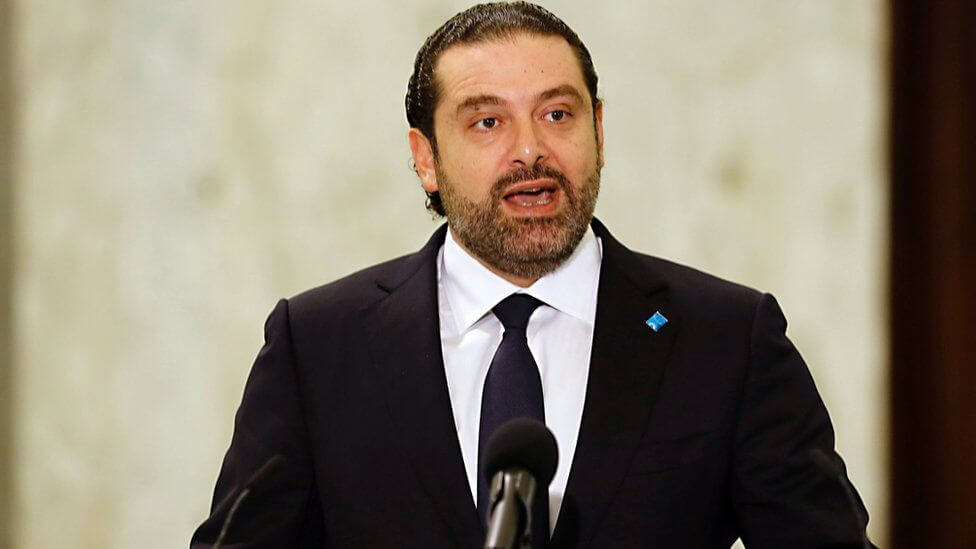Lebanese Prime Minister (PM) designate Saad Hariri met President Michel Aoun at the Baabda Palace on Wednesday to present a new cabinet proposal, seeking to end the months-long political deadlock in the Mediterranean country as it faces an economic collapse.
Hariri said the new proposal includes 24 specialist ministers, in line with a French initiative to end the stalemate. “For me, this government can start to rescue the country and stop the [economic] collapse,” Hariri told the press after meeting Aoun. He was hopeful of getting a response from the President by Thursday. “This is the moment of truth,” Hariri declared.
Also Read: EU, Led by France, Agrees to Impose Sanctions on Lebanese Leaders
More details of the proposal regarding the constitution of the line-up were not immediately clear, and President Aoun gave no clues if he would accept the proposal. Aoun said he would study the proposal that contained “new names and a new distribution for portfolios and sects from what was previously agreed.” He also held talks with French Presidential envoy to the Middle East Patrick Dorrell and told him that “efforts are ongoing to form a new government” and hoped that the meeting with Hariri “will bear positive results.” He supported the French initiative to form a new cabinet and was “grateful” to President Emmanuel Macron for his efforts to help Lebanon.
However, Hariri and Aoun have been blaming each other for preventing the formation of a new government. Hariri accused the pro-Hezbollah Aoun of allying with the militant group to obtain one-third of the cabinet seats based on sectarian and partisan lines. One-third of seats would give the alliance veto power over government decisions and policies.
Also Read: Qatar to Provide Lebanese Soldiers With Aid Amid Worsening Economic Crisis
Following last year’s devastating blast at the Beirut Port, which resulted in more than 200 deaths and about $15 billion in economic losses, the government led by then-PM Hasan Diab stepped down and Diab assumed the role of caretaker PM. At the same time, Hariri was appointed as PM-designate in October to form a new government. However, due to tensions between ethnically divided political parties, the country has been unable to create a new cabinet ever since.
In 1989, Lebanese groups signed the Saudi Arabia-backed Taif Agreement to end the devastating 15-year civil war between sectarian groups, including Maronite Christians, Sunni, and Shia Muslims. The Agreement restructured the power-sharing deal called the National Pact, which favoured the Maronites, by transferring some power to the Sunni and Shia minorities. According to the National Pact, the President will always be a Maronite Christian, the PM a Sunni, and the Speaker of parliament a Shia. While the Taif Agreement was meant to resolve Lebanon’s sectarian strife, critics have argued that, over the years, it has widened ethnic divisions within the country and is seen as one of the many reasons for the country’s current deadlock that has worsened the economic situation.
Also Read: Lebanese Workers Strike Over Worsening Economic Crisis
The World Bank stated that the country’s economic crisis ranks as one of the worst the world has witnessed in over 150 years. It reported that “Lebanon is enduring a severe and prolonged economic depression, which is among the most severe crisis episodes globally since the mid-nineteenth century.” Lebanon is also facing severe food, medicine, and fuel shortages. The GDP growth rate has crashed by around 40%, unemployment levels have skyrocketed, and inflation has soared. The World Bank believes that the crisis can only be resolved by a “reform-minded government which embarks on a credible path toward economic and financial recovery.”

